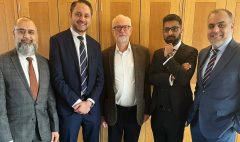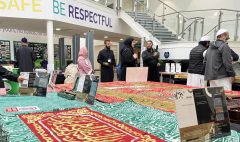British Muslims deserve safety and belonging
October 7, 2024 2024-10-12 14:04British Muslims deserve safety and belonging
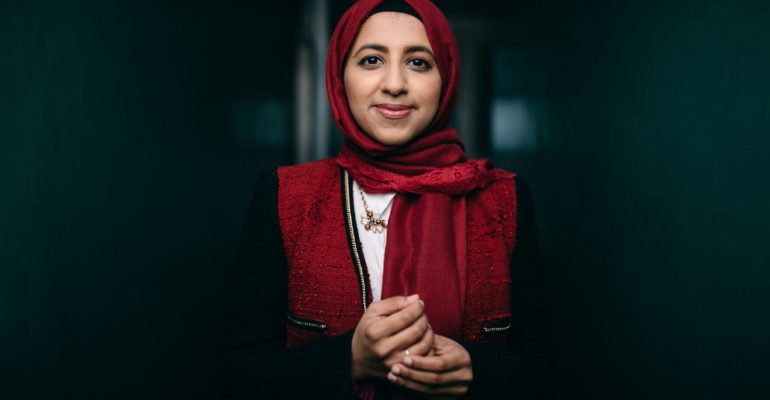
British Muslims deserve safety and belonging
“War in Gaza has made us fear we’ll lose both. The conflict has been manipulated to stoke hatred against us – this shouldn’t be a religious issue, but a human rights one.”
Opinion by Zara Mohammed
The reverberations of the Israel-Gaza conflict have been felt acutely by British Muslims in the year since the attacks of 7 October. As I travel across our communities, I’ve witnessed first-hand how the conflict has challenged once again our sense of security and our place within British society.
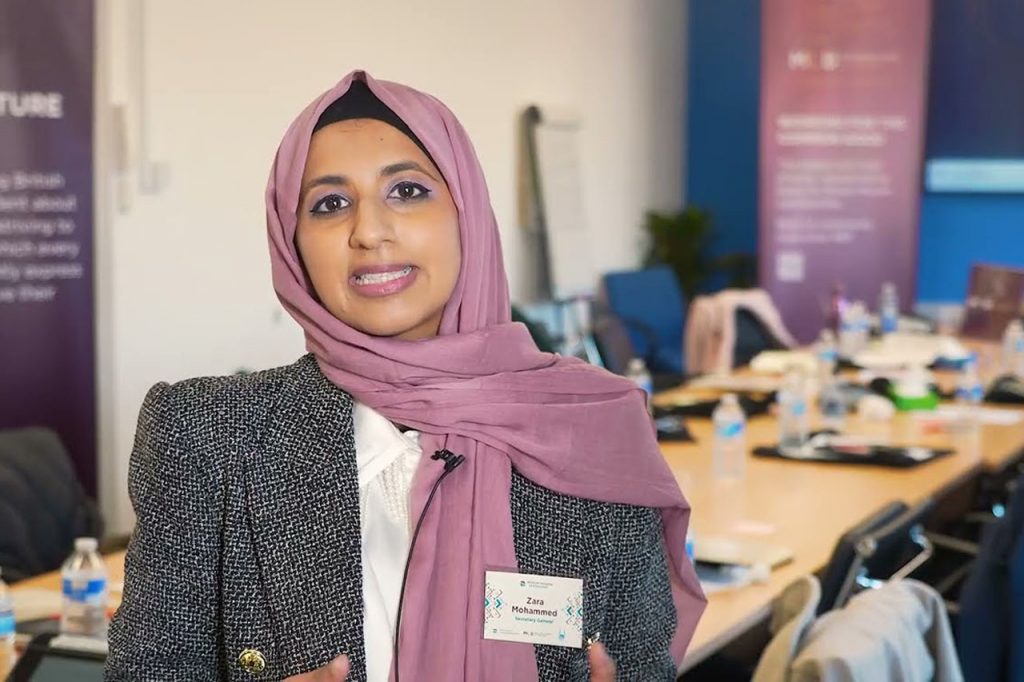
The human cost is staggering. I’ve spoken with British Palestinians who have lost dozens of family members in Gaza. Parents call me, distraught after their children have been arrested for their pro-Palestinian advocacy. University students fear deportation for criticizing Israel.
The calls for peace and justice for Palestinians echo far beyond the Muslim community. People of all faiths and none have taken to the streets in diverse, impassioned marches. With each passing day, as the civilian death toll in Gaza and beyond mounts, the case against Israel for having committed war crimes grows stronger. This is not a Muslim issue; it’s a human rights issue that concerns us all.
Yet British Muslims find themselves caught up in this, thrown into “culture wars” not of their choosing. While we stand in solidarity with those facing mortal suffering, we are confronted by an alarming surge in Islamophobia. The conflict has been cynically manipulated to stoke hatred against Muslims, orchestrated not only by far-right elements, but also by those who deploy harmful tropes to silence peaceful advocacy for Palestine.
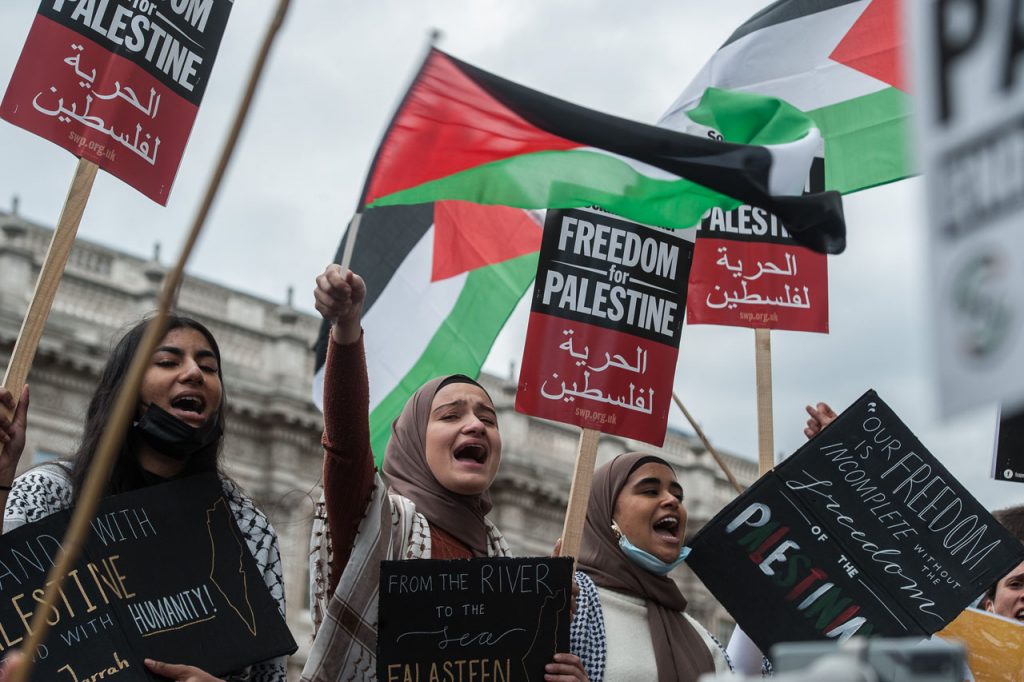
The racist riots we witnessed in England in the summer were, in part, a reflection of this – fueled by false narratives of “two-tier policing”. Just this summer, we saw leading politicians make calls to ban the sacred Muslim affirmation “Allahu Akbar” (God is great) and declare that “Not all cultures are equally valid” when talking of recent immigrants who apparently “hate” Israel. Muslim politicians face accusations of being controlled by Islamists or pursuing “sectarian” agendas.
In workplaces across the country, Muslims struggle to process the horrors they are witnessing while navigating difficult conversations with colleagues. Even longstanding inter-faith relationships have been strained. While many Jewish and Muslim colleagues have reached out to support one another, the polarization has taken its toll. There has been a concerted effort to frame this as a Muslim-Jewish issue, disregarding the millions of others who oppose the violence on humanitarian grounds.
Communities have turned to us for guidance on how to help, how to challenge harmful narratives, and how to maintain hope as the violence continues. Mosques, seeking to provide spiritual solace, have faced vandalism and attacks. Schools grapple with students wearing Palestinian badges, leaving many young people confused and conflicted.
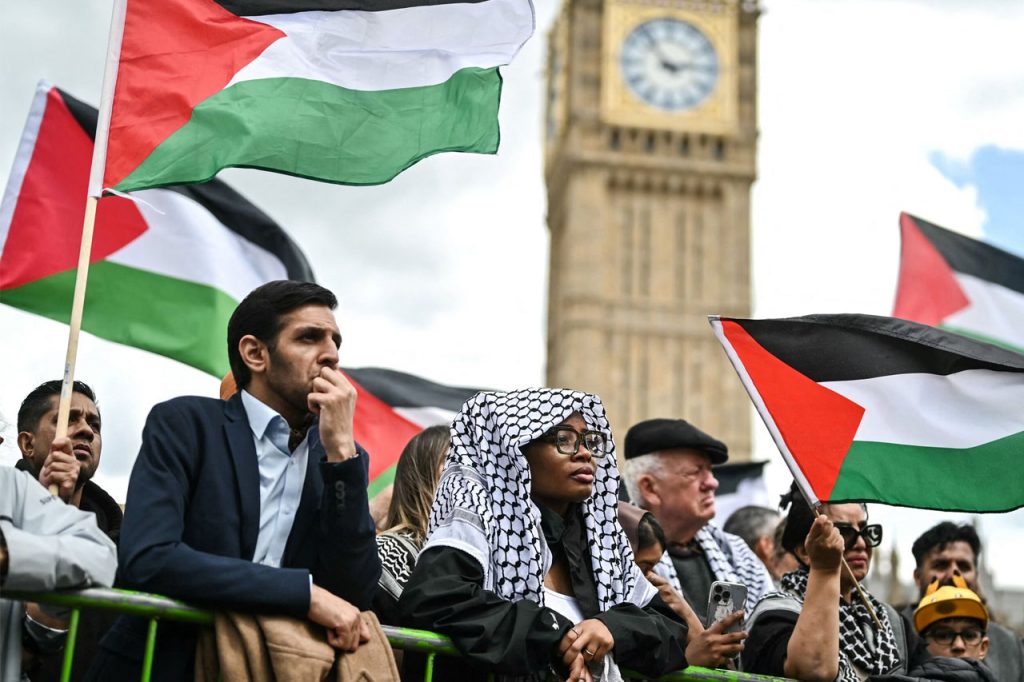
The physical manifestations of hate are impossible to ignore. I myself experienced a hate crime on the London Underground, where someone shouted at me: “You lot are all taking over.”
Yet despite these challenges, there is hope. We can build common bonds that would bypass the urge to “choose sides”, while adhering to our deeply held view that the unfolding genocide in Palestine must stop.
Source: The Guardian


